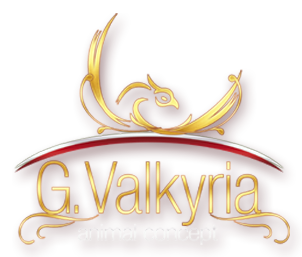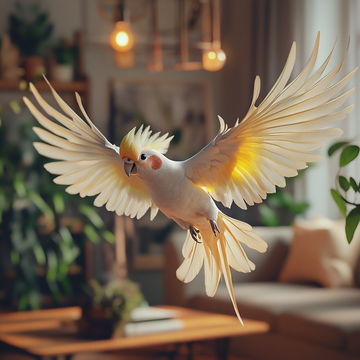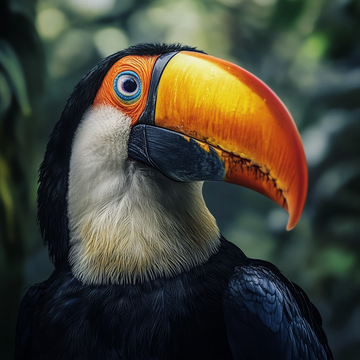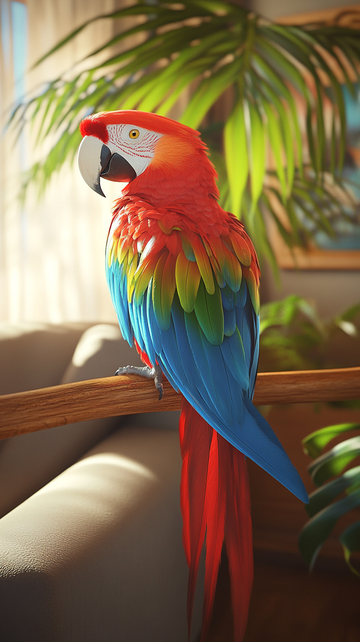At G.Valkyria, we understand that cockatiels are more than just pets; they are intelligent and loving companions that fill our homes with joy and melodies 🎶. If you are thinking of adopting a cockatiel or already have one at home, this complete guide will help you provide them with the best care possible. From their basic needs to advanced tips, we offer you all the information you need to ensure a long and happy life for your feathered friend 🏡💖.
Meeting the Nymph 🦜
Cockatiels, also known as cockatiels , are birds native to Australia. They are the second most popular parrot species as pets after the budgie. Key Features:
- Life Expectancy : Between 15 and 25 years with proper care.
- Size : Approx 30-33cm long.
- Personality : Sociable, curious and can learn to whistle melodies and imitate sounds.
G.Valkyria Tip : Spend time every day interacting with your cockatiel. They are birds that enjoy company and mental stimulation 🧠.
Basic Care 🛠️
Cage Size 🏠
- Minimum Dimensions : The cage must be at least 60 cm wide x 60 cm deep x 90 cm high .
- Room to Fly : Nymphs need room to spread their wings and move freely.
- Bars : Separation no greater than 1.5 cm to prevent escape or entrapment.
Cage Equipment :
- Hangers : Of different thicknesses and materials (natural wood is ideal).
- Feeders and Waterers : Easily accessible and clean.
- Toys : Provide safe toys that stimulate their mind and allow chewing.
G.Valkyria Tip : Place the cage in a quiet place, away from drafts and with good natural lighting ☀️.
Food 🍎
A balanced diet is essential for your cockatiel's health.
1. Seed Mix :
- Millet, canary seed, oats, sunflower seeds : They provide energy, but should be part of a varied diet.
2. Pellets :
- Balanced Food : Ensures they receive all essential nutrients.
3. Fresh Fruits and Vegetables :
- Safe Fruits : Apple (seedless), pear, peach, mango.
- Safe Vegetables : Carrot, broccoli, spinach, bell pepper.
- Avoid : Avocado, chocolate, caffeine and salty or sugary foods.
4. Calcium Supplements :
- Cuttlefish Bone : Helps in the formation of bones and beak.
5. Foods that Should Not Be Given to a Nymph 🚫
It is crucial to avoid certain foods that can be toxic or harmful to your cockatiel. Below are the foods that should not be offered:
- Avocado : Contains persin, a toxin that can cause respiratory failure and death.
- Chocolate : Contains theobromine and caffeine, which are highly toxic to birds.
- Caffeine : Similar to chocolate, it can affect the central nervous system.
- Salty Foods : Can cause dehydration and kidney problems.
- Sugars and Sweets : Can lead to health problems such as obesity and diabetes.
- Onion and Garlic : They can cause damage to red blood cells and anemia.
- Apple and Pear Seeds : They contain cyanide, which is deadly.
- Iceberg Lettuce : Low in nutrients and can cause diarrhea.
- Processed Foods : They contain preservatives and additives that are harmful.
- Dangerous Fruits and Vegetables : Such as grapes and raisins, which can cause kidney failure.
G.Valkyria Tip : Always do your research before introducing a new food into your cockatiel's diet and consult your veterinarian if you have any questions about the safety of any food 🩺.
Company and Socialization 🤝
-
Number of Birds : Cockatiels are social birds. You can keep just one as long as you put in the time, but two can provide constant company.
-
Human Interaction : Dedicate at least 1-2 hours a day to play and training.
-
Training :
- Positive Reinforcement : Use rewards and praise.
- Learning Sounds : They can learn to whistle and occasionally talk.
G.Valkyria Tip : Patience and consistency are key in training. Avoid punishments and focus on creating positive experiences 🥰.
Health and Wellness 🩺
-
Visits to the Veterinarian :
- Initial Check : When you acquire your cockatiel.
- Annual Checkups : To monitor your health.
-
Signs of Illness :
- Behavior Changes : Lethargy, loss of appetite.
- Physical Appearance : Ruffled feathers, nasal or ocular discharge.
-
Hygiene :
- Regular Baths : Provide a dish of water or use a gentle sprayer.
- Cage Cleaning : Remove debris daily and perform a deep cleaning weekly.
G.Valkyria Tip : Observe your cockatiel daily to detect any changes and act quickly at any signs of illness 🐥.
Environmental Enrichment 🧠
-
Toys and Activities :
- Chew Toys : Safe wood, natural ropes.
- Mirrors and Rattles : Stimulate their curiosity.
- Toy Rotation : Change toys regularly to keep their interest.
-
Time Out of the Cage :
- Supervised Flight : Allows you to stretch your wings in a safe environment.
- Safe Area : Safe from hazards such as electrical wires and open windows.
G.Valkyria Tip : Mental stimulation prevents destructive behaviors and promotes a happy, healthy cockatiel 🌈.
Caring for a cockatiel is an enriching experience that requires commitment and love 🦜❤️. By providing a suitable environment, a balanced diet and constant attention, your cockatiel will be a faithful and cheerful companion for many years to come. At G.Valkyria, we are dedicated to providing you with the best advice and products to ensure the well-being of your bird. Thank you for trusting us on this wonderful avian journey! 🌟
Share your experience!
Do you have any anecdotes or tips about caring for cockatiels? 🦜💬 Share with us in the comments and let's help other bird lovers provide the best care possible!
We hope you find this article helpful! If you have any questions or need personalized advice, please feel free to contact us . At G.Valkyria, we are here for you and your adorable feathered companion 🦜💕.






